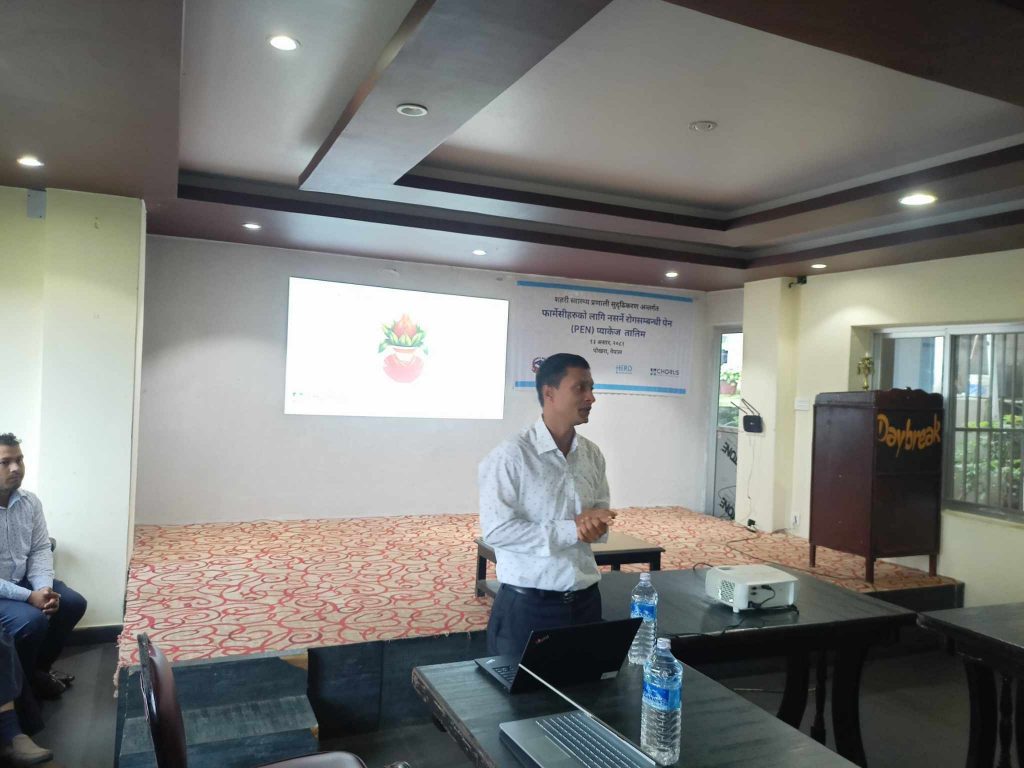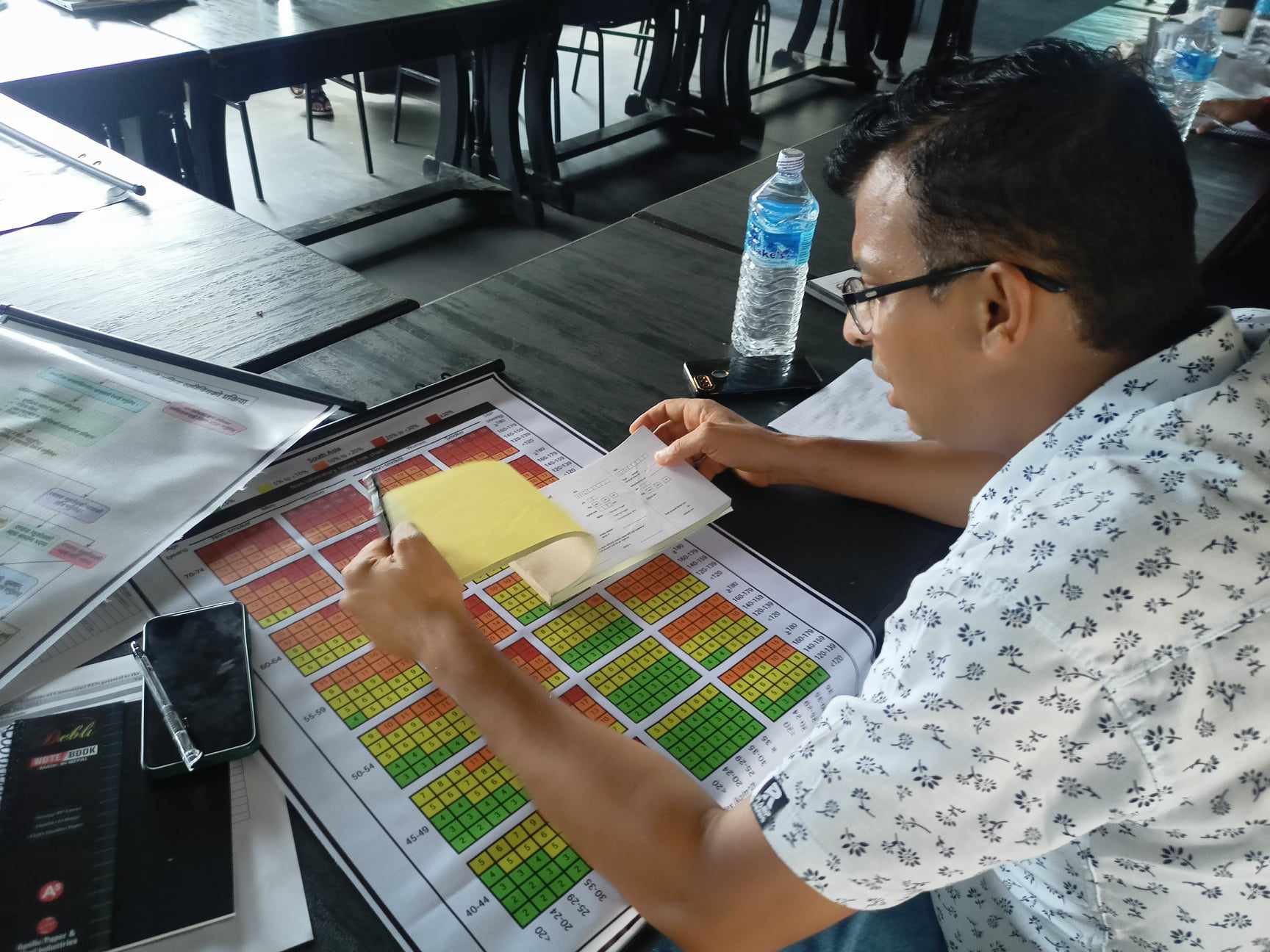Who is an embedded researcher?
Embedded researchers are an integral part of implementation research initiatives. They are placed directly into organizational settings to help enhance research capacity and promote evidence-based decision-making. Embedded researchers conduct research work, while also supporting their hosting organizations to develop policies and promote good practices.
As an embedded researcher in Pokhara Metropolitan City as part of Community Led Responsive and Effective Urban Health System (CHORUS) research, I work directly within the Metropolitan Health Division, collaborating with health officials, policymakers, local health facility staff, and community members. My job is to implement field level activities of research, bring data and evidence into everyday decision-making, and ensure health programs are practical and meet the community’s needs. By performing primary and secondary data analysis, our research team help feed evidence to inform policies, plans, and actions targeting health service improvement at local level. hereafter I was placed here as an embedded researcher, I gained an opportunity to better understand the intricacies of the local health system and to contribute meaningfully to health system strengthening.
Data is key
Data is crucial for informed decision-making, ensuring efficient resource allocation and targeted health interventions. It provides evidence to identify needs, prioritize programs, and enhance the effectiveness of health services. From the very start of this implementation research initiative, we have advocated for and promoted the use of data to inform local planning.
For instance, we began with a needs assessment in Pokhara Metropolitan City to identify gaps in Non-communicable Diseases (NCDs) services. By analyzing data from local health facilities, we identified that many residents in slum areas lacked access to regular NCD screenings. This led the Health Division to include targeted NCD programs in their annual budget, ensuring more people could get tested and treated.
Besides our structured research activities, we also get insights from ground level movement and experience in which we communicate with health system stakeholders and advocate for changes. We tracked medical supplies and staffing levels across Pokhara’s health facilities and noticed that some health facilities in rural wards had shortages of essential medicines. By presenting this data to the Health Division, we prioritized redistributing supplies to these underserved areas, ensuring vulnerable communities, like those in unmanaged settlements, received better care.
Supporting capacity building
Capacity strengthening of health workers is another area we support. Nepal’s local health systems are facing significant capacity gaps, such as lack of adequately trained health workers poor data management, planning, and lack of evidence-based decision-making due to limited technical skills. At ward-level in the city, we ran training sessions for health facilities’ staff guiding them to collect and interpret basic health data. For example, we trained staff members in Ward 9 to use simple Excel tools to track patient visits, which helped them report more accurately to the Health Division, improving planning for future health programs.
As mental health has emerged as a growing concern in the city, we also worked with the Health Division to develop a simple framework for community-based mental health awareness programs. We organized workshops in wards to educate community leaders about mental health issues, which increased the likelihood of more people seeking counseling services at local health facilities.
Similarly,during a recent dengue outbreak in Pokhara, we worked with the Health Division to map high-risk areas using the available data to help conduct awareness campaigns in affected wards aiming to reduce the spread of the disease. My experience shows that even simple technical support and use of local data can significantly strengthen health policies and practices. Evidence-based planning helps system to address service gaps, allocate resources better, and respond effectively to public health needs.
Challenges and Way Forward
Embedding a researcher within local health systems can meaningfully support municipalities deliver healthcare. Although the journey is rewarding for me, it was not free from challenges. Building trust with the system level officials was quite challenging in the initial phase. However, demonstrating the value of evidence in improving service delivery is effective to ensure mutual trust. Aligning research activities with the local system priorities helps ensure relevance, especially during times of competing demands. At a time when local health systems in Nepal face capacity constraints, through embedded approach, even small, data-driven change can create lasting impacts to build more responsive and equitable health systems.













Comments (0)
No comments found.